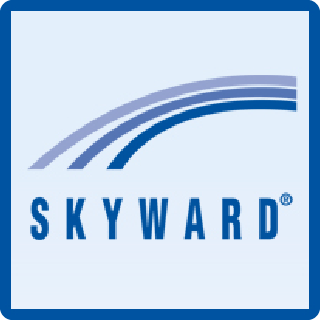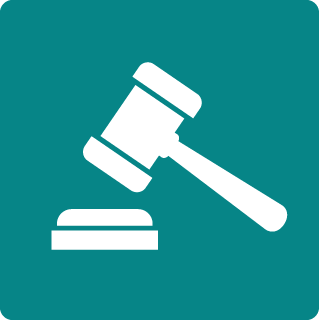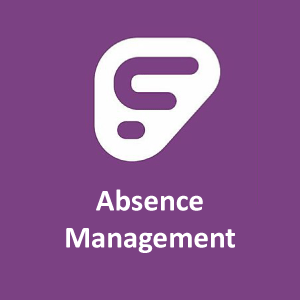


Video surveillance
Review the operating guidelines to record special education settings for the purpose of promoting the safety of students with disabilities.
Operating guidelines for video surveillance of special education settings
Implementing TEC §29.022 (as amended by SB 1398)
Summary/purpose
Texas Education Code §29.022 requires school districts and open-enrollment charter schools to place, operate, and maintain video cameras with audio recording capability in certain Self-contained Classrooms and Other Special Education Settings for students with disabilities, upon the request of a parent, the District’s Board of Trustees, or staff member, as defined herein, for the purpose of promoting the safety of students with disabilities in these classrooms.
Definitions
Expand AllAlleged incident
An event or circumstance that allegedly occurred in a Self-contained Classroom or Other Special Education Setting in which video surveillance under TEC §29.022 is conducted that involves alleged “abuse” or “neglect,” as defined in the Texas Family Code, of a student by an employee of the District, or alleged “physical abuse” or “sexual abuse,” as defined in the Texas Family Code, of a student by another student.
Designated District Coordinator
An administrator, designated by the Superintendent, at the primary administrative office of the District responsible for coordinating the provision of equipment to schools and campuses in compliance with TEC §29.022 and these Operating Guidelines.
Human Resource staff member
A Superintendent, a principal, an assistant principal or other campus administrator, and any supervisory position within the District’s human resources office, including Director of Special Education.
Incident Report (i.e. complaint)
A notification to the District of an Alleged Incident that occurred in a Self-contained Classroom or Other Special Education Setting in which video surveillance under TEC §29.022 is conducted by completing and providing an Incident Report form to the campus principal.
Other Special Education Setting
A classroom on a separate campus (i.e. a campus that serves only students who receive special education and related services), in which a majority of the students in regular attendance are provided special education and have one of the following instructional arrangements (i.e. PEIMS codes) as described in the Student Attendance Accounting Handbook: 86 or 96.
Parent
A parent, guardian or other person standing in parental relation to the student, whose rights have not been terminated, and whose child receives special education and related services for at least 50 percent of the instructional day in one or more Self-contained Classrooms or Other Special Education Settings. “Parent” also means a student who receives special education and related services for at least 50 percent of the instructional day in one or more Self-contained Classrooms or Other Special Education Settings and who is 18 years of age or older or whose disabilities of minority have been removed, unless the student has been determined to be incompetent or the student’s rights have been otherwise restricted by a court order.
School business day
A day that campus or District administrative offices are open.
Self-contained classroom
A classroom on a regular school campus (i.e. a campus that serves students in general education and students in special education), in which a majority of the students in regular attendance are provided special education and have one of the following instructional arrangements (i.e. PEIMS codes) described in the Student Attendance Accounting Handbook: 43, 44, 45, 84, 85, 89, 94, 95, or 98.
Staff member
A teacher, related service provider, paraprofessional, counselor, or educational aide assigned to work in a Self-contained Classroom or Other Special Education Setting.
Time-out
A behavior management technique in which, to provide a student with an opportunity to regain self-control, the student is separated from other students for a limited period in a setting that is not locked and from which the exit is not physically blocked by furniture, a closed door held shut from the outside, or another inanimate object (TEC §37.0021).
Video camera
A video surveillance camera with audio recording capabilities.
Video equipment
One or more video cameras and any technology and equipment needed to place, operate, and maintain video cameras, and any technology and equipment needed to store and access video recordings as required by TEC §29.022.
Procedures for requesting video/audio surveillance
A request by a Parent, Staff Member or Assistant Principal for a request for installation and operation of video/audio recording of a Self-contained Classroom or Other Special Education Setting must be made by completing and submitting to the campus principal (or principal’s designee) a written Request for the Installation of Video and Audio Recording Equipment (“Request for Installation”) form, including identification of the specific Self-contained Classroom or Other Special Education Setting for which the request is being made. The principal shall provide a copy of the Request to the Designated District Coordinator.
A Parent may request installation of a video camera for the Self-contained Classroom(s) or Other Special Education Setting(s) in which the Parent’s child is in regular attendance.
A parent of a student whose Admission, Review, and Dismissal (“ARD”) committee has determined that the student will be served in a Self-contained Classroom(s) or Other Special Education Setting(s) the following year, for at least 50 % of the day, may request installation of a video camera for the Self-contained Classroom(s) or Other Special Education Setting(s), where the parent’s child will be served in the next school year, by the later of: (1) the last date of the current school year, or (2) the 10th School Business Day after the date of the placement determination by the ARD committee.
A Staff Member may request installation of a video camera for the Self-contained Classroom(s) or Other Special Education Setting(s) to which the Staff Member is assigned.
A Principal may make a request for installation and operation of video/audio recording of a Self-contained Classroom(s) or Other Special Education Setting(s) by completing and submitting to the Designated District Coordinator a written Request for Installation form.
A Principal and/or Assistant Principal may request installation of a video camera for one or more Self-contained Classroom(s) or Other Special Education Setting(s) on the Principal or Assistant Principal’s campus.
The District Board of Trustees may make a request for installation and operation of video/audio recording of a Self-contained Classroom(s) or Other Special Education Setting(s) by completing and submitting to the Designated District Coordinator a written Request for Installation form, which must include identification of the specific Self-contained Classroom(s) or Other Special Education Setting(s) for which the request is being made. The Designated District Coordinator shall provide a copy of the Request to the principal (or principal’s designee) of each school or campus addressed in the Board of Trustees’ Request.
The Request for Installation form may be obtained from the Campus Principal. A request for installation and operation of video/audio recording of a Self-contained Classroom(s) or Other Special Education Setting(s) must be renewed annually if operation of the video/audio equipment is desired for the subsequent school year.
Procedures for responding to requests for video/audio surveillance, including notice
- Upon receipt of a Request for Installation form, the District will determine if the requested location is subject to video/audio surveillance as approved by the Executive Director of Special Education.
- Within seven School Business Days from receipt of the Request for Installation form, the Campus Principal will provide a written response to the requestor, authorizing the request or stating the reason for denying the request. The response shall include a copy of these Operating Guidelines.
- If the requested location is subject to video/audio surveillance, the District will purchase, install, and operate video/audio recording equipment in the classroom(s) or setting(s) to which the request applies.
- Except as provided in these Operating Guidelines, the purchase, installation, and operation of the video/audio recording equipment will take place not later than the 45th School Business Day, or the 1st school day after the 45th School Business Day if that day is not a school day, after the request is authorized (unless the Texas Education Agency [“TEA”] grants an extension of time).
- If a request is received from a parent of a student whose ARD committee has determined that the student will be served in a Self-contained Classroom(s) or Other Special Education Setting(s) the following year, the purchase, installation, and operation of the video/audio recording equipment will take place not later than the later of: the 10th school day of the fall semester of the next school year, or the 45th School Business Day, or the 1st school day after the 45th School Business Day if that day is not a school day, after the request is made (unless the TEA grants an extension of time).
- The video/audio recording equipment will not be activated until after the campus principal provides advanced written notice, of at least five School Business Days, of the placement of the video camera to (a) the parents of each student attending class, or engaging in school activities, in the classroom or setting, by sending the notice to the parents and (b) all campus staff by posting a notice at the entrance to the classroom or setting stating “This classroom is subject to ongoing video and audio surveillance that is not regularly live monitored.”
- The video recording will cover all areas of the classroom or setting, including a room attached to the classroom or setting used for Time-out.
- The inside of a bathroom or area used for toileting or diapering a student or removing or changing a student’s clothes may not be visually monitored, except for incidental coverage of a minor portion of the bathroom or changing area because of the layout of the classroom or setting.
- The audio recording will cover all areas of the classroom or setting, Time-out room, and bathroom or changing area.
- Once the video equipment is installed, the District will not allow regular or continual monitoring of the video/audio recordings.
- The video camera will be operated at all times during which students are present in the Self-contained Classroom or Other Special Education Setting. The video camera may also, but is not required to, be operational at times when students are not in the classroom or setting.
- The District will continue to operate and maintain the video/audio recording in the Self-contained Classroom or Other Special Education Setting for the remainder of the regular school year, or for the remainder of the Extended School Year (“ESY”) services for which the school or campus received the request, as long as the classroom or setting continues to meet the definition of a Self-contained Classroom or Other Special Education Setting. If the requestor withdraws the request in writing, or if the make-up of the classroom or setting changes such that the location no longer meets the definition of a Self-contained Classroom or Other Special Education Setting, the video/audio recording may be discontinued. Written notice of the discontinuation of video/audio surveillance will be provided to the parents of the students in regular attendance in the classroom or setting at least five school days prior to the discontinuation.
- At least ten school days before the end of each school year, the school or campus shall notify the parents of each student in regular attendance in the classroom or setting that operation of the video camera will not continue during the following school year unless a person eligible to make a request for the next school year submits a new request.
- The video/audio recordings will be stored in a safe and secure manner whether on on-site or off-site servers or in cloud storage.
- The District will retain the video/audio recordings for at least three months after the video was recorded, and may retain them longer if a request for viewing is made, as specified below.
- These requirements apply to video/audio surveillance during the regular school year and during ESY services.
Procedures for making an incident report
A person may notify the Campus Principal of an Alleged Incident occurring in a Self-contained Classroom or Other Special Education Setting where video/audio surveillance is in effect by completing an Incident Report form and providing it to the Campus Principal. The Incident Report form may be obtained from the Campus Principal. (If the Alleged Incident involves the Campus Principal, the Incident Report form should be provided to the Area Director.)
The person making the Incident Report should be as specific as possible regarding the date, time, and location of the Alleged Incident, should include any witnesses, and should describe the suspected incident as clearly as possible. The Incident Report should be provided to the campus principal as soon as possible, and if at all possible within 48 hours after the reporter becomes aware of an Alleged Incident.
Procedures for responding to an incident report
- If an Alleged Incident, as defined herein, is reported, absent extenuating circumstances, within seven (7) School Business Days from receipt of the Incident Report Form, the campus principal or authorized designee will coordinate with one or more eligible person(s) as set forth below to schedule a time and location for them to view the recording of the Alleged Incident to determine whether the recording contains evidence of abuse or neglect, as defined in the Texas Family Code, of a student by an employee of the District, or physical abuse or sexual abuse, as defined in the Texas Family Code, of a student by another student. If so, the appropriate District administrator shall initiate other steps as required by law, District policy, or local procedures.
- The appropriate District administrator(s) will determine whether any additional safety measures should be taken in the Self-contained Classroom or Other Special Education Setting pending a review of the relevant video/audio recording.
- If the Alleged Incident, as set forth on the Incident Report form, cannot as described on the form, qualify as abuse or neglect, as defined in the Texas Family Code, of a student by an employee of the District, or physical abuse or sexual abuse, as defined in the Texas Family Code, of a student by another student, the District will provide written notice to the person making the report that the allegations on the Incident Report form do not set forth an Alleged Incident (i.e. abuse or neglect, as defined in the Texas Family Code, of a student by an employee of the District, or physical abuse or sexual abuse, as defined in the Texas Family Code, of a student by another student.)
- Following the initial review of the video/audio recording by the District’s eligible persons, the District will notify the Parent who made the Incident Report as to whether the recording documented abuse or neglect, as defined in the Texas Family Code, of a student by an employee of the District, or physical abuse or sexual abuse, as defined in the Texas Family Code, of a student by another student within three (3) School Business Days. The District will notify the Parent of one of the following:
- The recording documenting abuse or neglect, as defined in the Texas Family Code, of a student by an employee of the District, or physical abuse or sexual abuse, as defined in the Texas Family Code, of a student by another student, is available for viewing by the Parent upon making an appointment;
- While the recording did not document abuse or neglect, as defined in the Texas Family Code, of a student by an employee of the District, or physical abuse or sexual abuse, as defined in the Texas Family Code, of a student by another student, it did document a significant act involving the student, such that the recording is an educational record pursuant to the Family Educational Rights and Privacy Act (FERPA) and is available for viewing by the Parent upon making an appointment; or
- As the recording does not depict abuse or neglect, as defined in the Texas Family Code, of a student by an employee of the District, physical abuse or sexual abuse, as defined in the Texas Family Code, of a student by another student, or a significant act involving the student such that the recording is not an educational record pursuant to FERPA, access to view the recording will not be provided. This denial can be appealed as described herein.
- Additionally, the District will notify any non-reporting parent of a child who is subject to abuse or neglect, as defined in the Texas Family Code, of a student by an employee of the District, or physical abuse or sexual abuse, as defined in the Texas Family Code, of a student by another student, as documented on the recording within three school business days of the initial review of the video/audio recordings.
Access to Video/Audio Recordings
- A video/audio recording made as a result of these provisions is confidential.
- The District will not allow regular or continual monitoring of video/audio recordings.
- The District will not use the video/audio recordings for teacher evaluation or monitoring or for any purpose other than the promotion of safety of students receiving special education in a Self-contained Classroom or Other Special Education Setting.
- In response to an Incident Report setting forth an Alleged Incident, the District will allow viewing of the video/audio recording only by the following eligible persons:
- An employee who is involved in an Alleged Incident that is documented by the recording and who requests to view the recording;
- A parent/guardian of a student who is involved in an Alleged Incident documented by the recording and who requests to view the recording;
- A peace officer;
- A school nurse;
- A District or school administrator trained in de-escalation and restraint techniques; and
- A Human Resources Staff Member designated by the Board of Trustees.
- As part of an investigation of district or school personnel, or a report of alleged abuse committed by a student, the District will allow viewing of the video/audio recording only by the following:
- A peace officer;
- A school nurse;
- A District or school administrator trained in de-escalation and restraint techniques; and
- A Human Resources Staff Member designated by the Board of Trustees.
- The District will also allow viewing of the video/audio recording to the following under the following conditions:
- Appropriate Department of Family and Protective Services (“DFPS”) personnel as part of an investigation of alleged or suspected abuse or neglect of a child in a public or private school under the jurisdiction of the TEA;
- Appropriate TEA or State Board for Educator Certification (“SBEC”) personnel or agents as part of an investigation; and
- If DFPS personnel, a peace officer, school nurse, administrator, human resources staff member or SBEC personnel/agent view the video/audio recording and believes that the recording documents a possible violation of district or school policy, relating to the neglect or abuse of a student, the person may allow appropriate legal and human resources personnel access to the recording, and the recording may be used as part of a disciplinary action against district or school personnel.
- A District employee who is the subject of the disciplinary action must be allowed to view a recording believed to document a possible violation of District or campus policy, relating to abuse of neglect of a student, if the employee requests to view the recording.
- In accordance with Board Policy FL (LEGAL and LOCAL), District personnel or contractors whose job duties involve installation, operation, or maintenance of the video equipment or the retention of the video recordings will have access to the equipment and recordings only to the extent necessary to ensure the functionality of the equipment.
- No one has any right to obtain a copy of a video/audio recording except that a copy will be released at the request of the student’s parent or guardian in a legal proceeding.
- Nothing in these procedures limits a parent’s right to access educational records of a child under the Family Educational Rights and Privacy Act. However, not all surveillance video/audio recordings are educational records of a student. If the recording is directly related to a student who is the focus of the video, only that portion of the recording is an educational record of that student and may be viewed by that student’s parent upon request. The recording is not an educational record of students who are merely present and not the focus of the recording, and may not be viewed by the parents of these students.
- If the District receives a request to view a recording, the District will provide a written response to the requestor within seven School Business Days that access will or will not be provided.
Child abuse reporting
If a peace officer, school nurse, administrator, human resources staff member, or SBEC personnel/agent views the recording and believes that the recording documents possible abuse of a child as defined by the Family Code, the person shall submit a report to the DFPS for investigation in accordance with the Family Code.
Dispute resolution
Special education dispute resolution procedures (i.e. due process hearing, mediation, TEA complaint) do not apply to any dispute arising under TEC §29.022 or these provisions. Such disputes must be addressed through the District’s grievance procedures or other local dispute resolution channels.
Employee complaints/grievances must be made in accordance with Board Policy DGBA (LEGAL) and DGBA (LOCAL); Student and/or Parent complaints/grievances must be made in accordance with Board Policy FNG (LEGAL) and FNG (LOCAL), and public complaints must be made in accordance with Board Policy GF (LEGAL) and GF (LOCAL).
The grievant may appeal the District’s decision by filing a written petition, pursuant to Tex. Educ. Code §7.057, with the Commissioner of Education. The appeal must be made in writing to the Commissioner within 45 days of the District’s decision.
Staff Members or a Parent may seek expedited TEA review if a request is denied. This could be a request for installation, a request to view, or a request for extension of time for installation.










